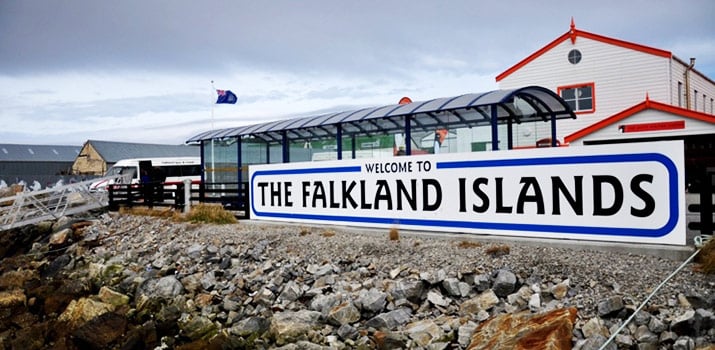The Falkland Islands - Fun Facts, Myth & Reality

Surf’s up! Hard to believe, but that's the reaction from a thankfully small (and ill-informed) group of people when the Falkland Islands are mentioned – "some tropical island" in the South Atlantic. But this beautiful group of islands isn't about beach culture unless you're referring to penguins. There's plenty else to talk about with the Falkland Islands, including fun facts and myths that surround them, and we could go back to 1690 when English Captain John Strong made the first recorded visit… but that’s an article for another time.
The sovereignty of the Falklands changed hands several times after Strong's visit, but in 1833 Britain reasserted its claim, arriving in force to evict the Argentinians as the current controllers of the islands. Stanley – previously known as Port Jackson – became the seat of the Crown colony in 1845.
The Falklands Islands Company was founded in 1851, primarily to exploit the wild cattle descended from herds imported by the French. Subsequently, sheep farming becomes the basis of the islands' economy, and some 2,000 British settlers arrived to assist the islands to be economically self-supporting. By 1881, the islands became financially independent of Britain. During the early years of the 20th century, the Falklands played a key role in Britain's territorial claims to a section of Antarctica and subantarctic islands like South Georgia.
Bringing us up to contemporary times, a force of some 5,000 Argentinian troops lands in the Falklands on 2 April, 1982, claiming sovereign rights over them as the Islas Malvinas. The defending British battalion of 81 marines was easily overpowered, but that situation didn't last long. A British expeditionary force soon landed on East Falkland, where a bridgehead was established. Within a week, Port Darwin and the nearby Goose Green airstrip were captured by the British. On June 14, it was announced that British troops were in Port Stanley and the Argentinians had surrendered.
Although little-to-no progress has made on the matter of sovereignty, a compromise on oil was reached in 1995. Britain and Argentina agreed to share, in proportions varying in different regions, any wealth deriving from the anticipated oil fields.
Fun Facts or Myths
It is always cold and bleak.
Not true. The climate is like that of the United Kingdom although it tends to rain a bit less. The most dominant characteristic of Falklands weather is the prevailing westerly wind. The temperature of the islands fluctuates within a narrow band, not reaching higher than 24 °C (75 °F) or lower than −5 °C (23 °F). There are long hours of sunshine during the Austral summer, although sometimes limited by cloud cover.
The Falklands are currently a British colony or dependency.
Wrong. The Falkland Islands are a British Overseas Territory, which is different from a colony. Colonialism is an outdated concept that suggests one large nation dominating the people of “distant” land. The Falklands are democratic and self-governing, except for matters of defense and foreign affairs. The Falklands are a British Overseas Territory by choice.
But the culture is very much like the UK, and you even drive on the left! There are red telephone boxes in Stanley and the currency is the Falkland Islands pound, which is worth the same as British pound sterling. Speaking of phones, cellular phones were only introduced to the Falklands around 2005.
Everyone speaks Spanish.
Wrong. While there have always been some Spanish speakers on the islands, and it is taught in school as a second language, English is the spoken language.
The Falklands is a favorite destination for wildlife fans.
True. You'll find thousands of penguins in colonies all over the archipelago, as well as a host of other birds including over 65% of the world’s black-browed albatross population, plus sea lions, elephant seals, dolphins, killer whales and much more.
Fast Food?
Wrong! There is no McDonalds, no Panera, and no Starbucks – in fact no chain shops or restaurants of any kind.
The Falkland’s cost the UK taxpayer millions of pounds to maintain.
Wrong. The Falklands are entirely financially self-sufficient, except for the cost of defense, which amounts to some 0.177% of the total UK defense budget.
To summarize, the surf’s not up in the Falklands – not the surfboard variety – but there's plenty to see and do! There are several opportunities to visit this unique spot each Austral summer aboard Poseidon Expedition's Sea Spirit, as part of her voyages to the Falklands, South Georgia and the Antarctic Peninsula.
If you have any more Falkland Islands fun facts or trivia to add, or if you have personal recollections of a , please do so in the comments.